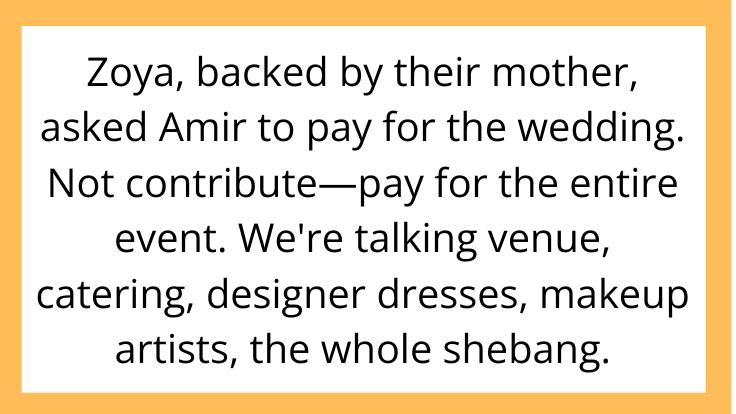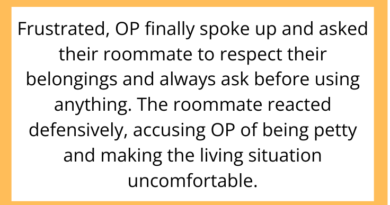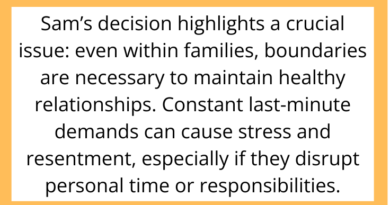AITAH for Not Paying for My Sister’s Wedding Even Though I Can Easily Afford It?
Weddings are supposed to be joyous occasions, but what happens when family expectations and money collide? In today’s AITAH tale, we explore the fallout when financial independence turns into emotional pressure—and whether being able to help means you should help.
Let’s dive into this family drama that’s sparking intense debate online.
The Story: A Successful Brother, a Struggling Sister

The original poster (let’s call him Amir), a 32-year-old software engineer, shared his situation on r/AITAH. After years of hard work, Amir is financially stable. He owns a nice apartment, drives a good car, and has a comfortable savings cushion. He’s not a millionaire, but by most standards, he’s doing well.
His younger sister, Zoya, 26, is getting married in a few months. Their parents—middle-class and already in debt from Zoya’s college education—can’t afford the kind of wedding Zoya dreams of. That’s where the tension begins.
Zoya, backed by their mother, asked Amir to pay for the wedding. Not contribute—pay for the entire event. We’re talking venue, catering, designer dresses, makeup artists, the whole shebang.
Amir said no.
He didn’t say he wouldn’t help at all—he offered to gift her ₹3 lakhs (roughly $3,600 USD), which he felt was generous and fair. But Zoya and their mom were livid.
They called him heartless, selfish, and even accused him of flaunting his wealth while turning his back on family.
Amir’s Side: Financial Freedom ≠ Obligation

Amir explains that he worked hard for everything he has. He paid for his own education, lived frugally for years, and skipped vacations and luxuries to build a stable future.
“I love my sister,” he wrote. “But I’m not her sponsor. I’m not going to spend 15 lakhs on a single day just because I can.”
He also mentioned that he’s saving for a down payment on a second property, and helping his fiancée build a small business. For him, money isn’t just about what he has—it’s about what he’s planning for.
To him, giving ₹3 lakhs was a kind and generous gesture—not a betrayal.
Zoya’s Side: Family Should Help Family
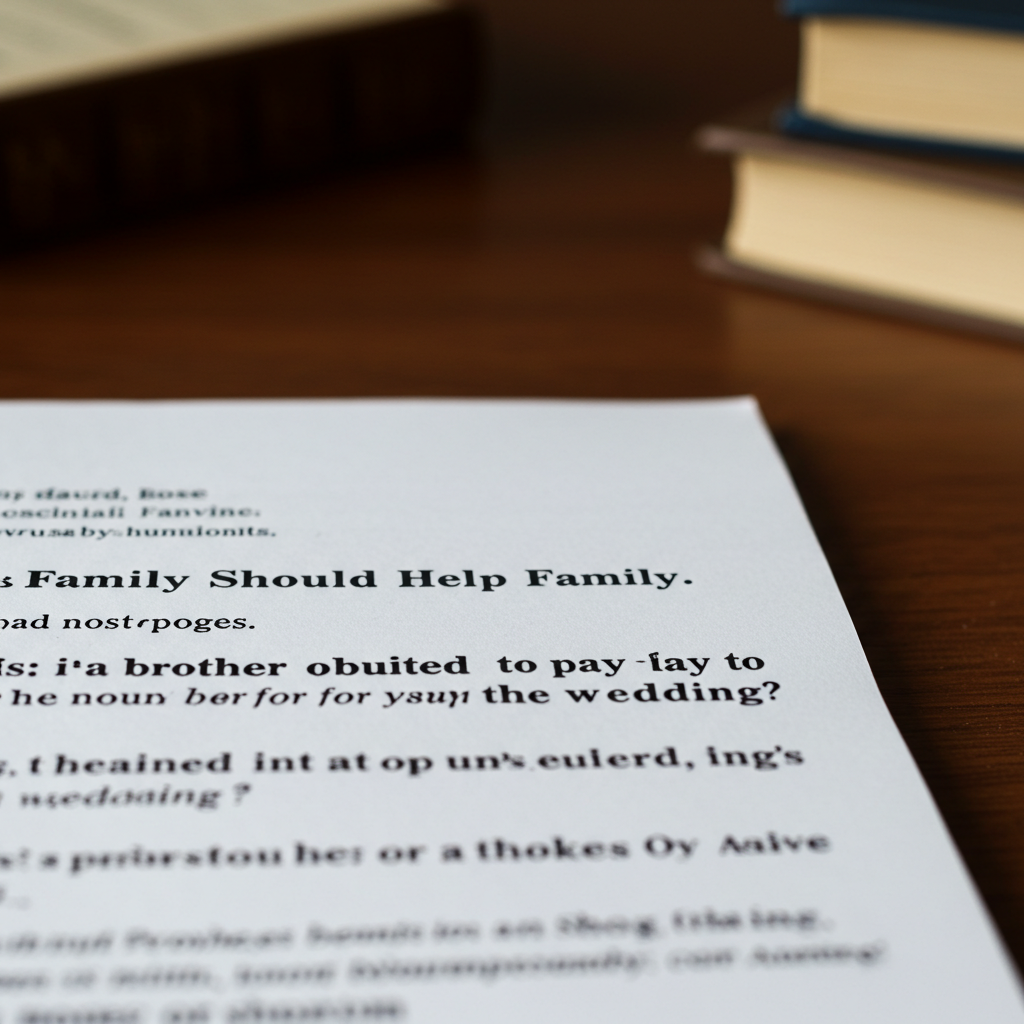
On the other hand, Zoya and her mother believe Amir is being unfair. From their perspective, he’s in the best position to help and refusing out of sheer selfishness.
Zoya even compared Amir to other brothers who “go all out” for their sisters’ weddings, citing cultural expectations and emotional responsibility.
Their mother’s argument was simple: “If we can’t turn to you, who else do we have?”
In their eyes, Amir is prioritizing future investments over a once-in-a-lifetime event—and over his own sister.
Reddit Responds: The Verdict is Divided

The responses on Reddit were mixed, though most leaned in Amir’s favor.
Top-voted comment:
“You’re not an ATM. Helping out doesn’t mean bankrupting yourself for someone else’s big party.”
Others pointed out that weddings often become financial black holes, and no one should be expected to fund them—especially if the person being asked didn’t even get a say in the scale or planning of the event.
However, there was also a strong minority who sided with Zoya.
One user wrote:
“In many families, especially desi ones, it’s an unspoken duty for the older, more successful sibling to step up. If my brother refused to help, it would genuinely break my heart.”
Key Issues: Money, Culture, and Emotional Expectations

1. Financial Ability vs. Emotional Guilt
Amir can afford to pay—but should he be guilt-tripped into it? Where’s the line between generosity and obligation?
2. Cultural Pressures
In many South Asian cultures, it’s customary for brothers to contribute significantly to a sister’s wedding. But is tradition enough reason to override someone’s personal financial boundaries?
3. One-time Event vs. Long-term Planning
Zoya sees this as her big day—possibly the most important of her life. Amir sees it as a financial decision with long-term implications. Both perspectives carry weight, but they clearly clash.
What Could Have Been Done Differently?
This situation likely escalated due to a lack of clear communication and unrealistic expectations. A more transparent family conversation early on might have helped manage assumptions.
Amir could’ve explained his financial priorities more delicately. Zoya and their mom could have been more appreciative of the ₹3 lakh offer instead of dismissing it entirely.
So, AITAH?
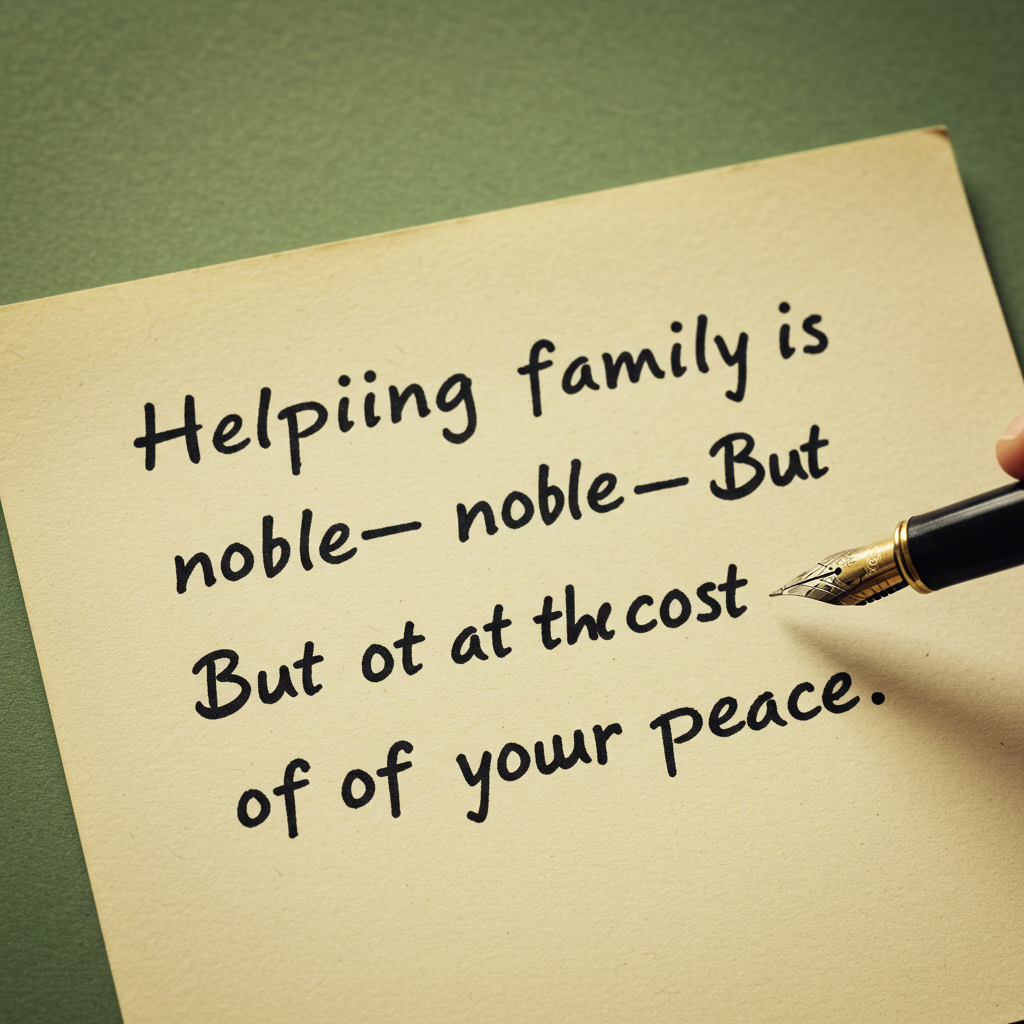
If we’re judging based on Reddit standards, no, Amir is not the villain.
Helping family should always be a choice, not a demand. And generosity loses meaning when it’s treated like a debt.
That said, emotional intelligence matters. Could Amir have handled the situation with more empathy? Possibly. But his choice to say “no” doesn’t make him selfish—it makes him financially responsible.
